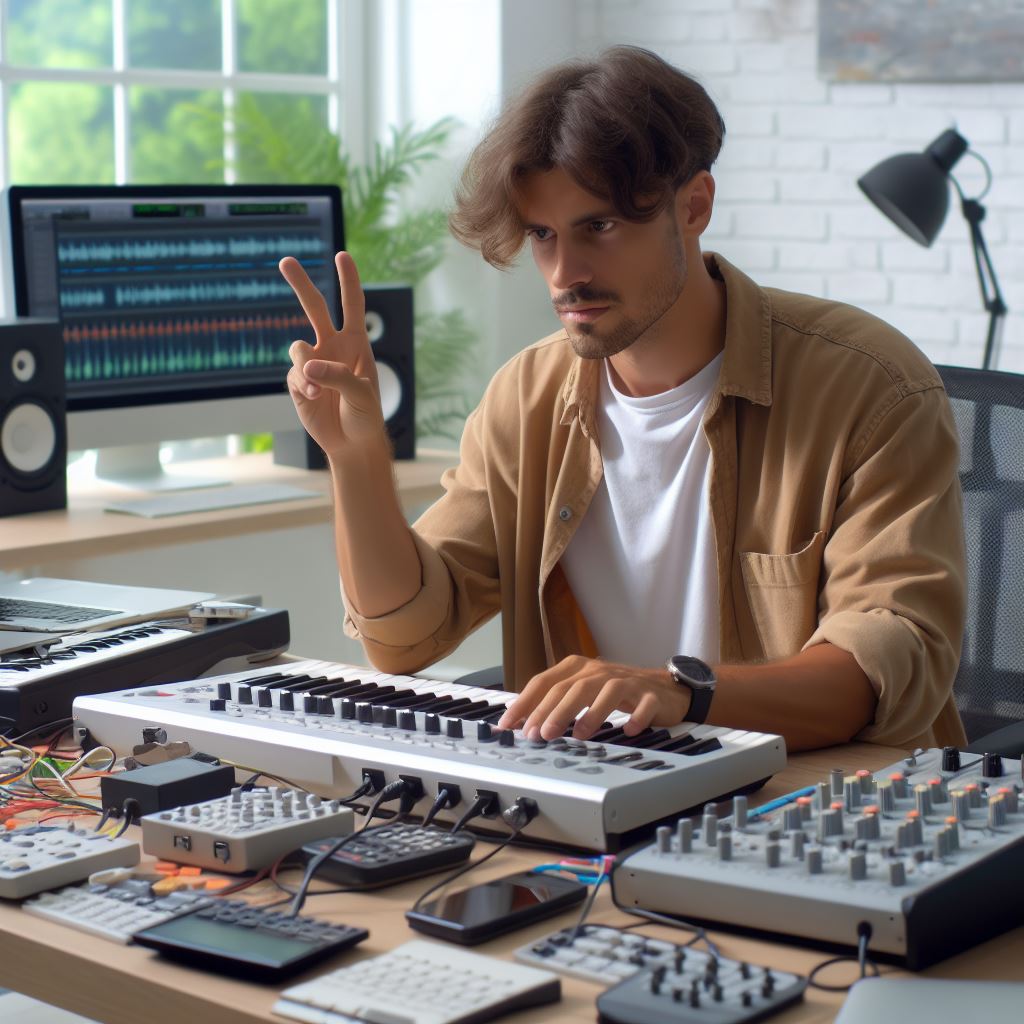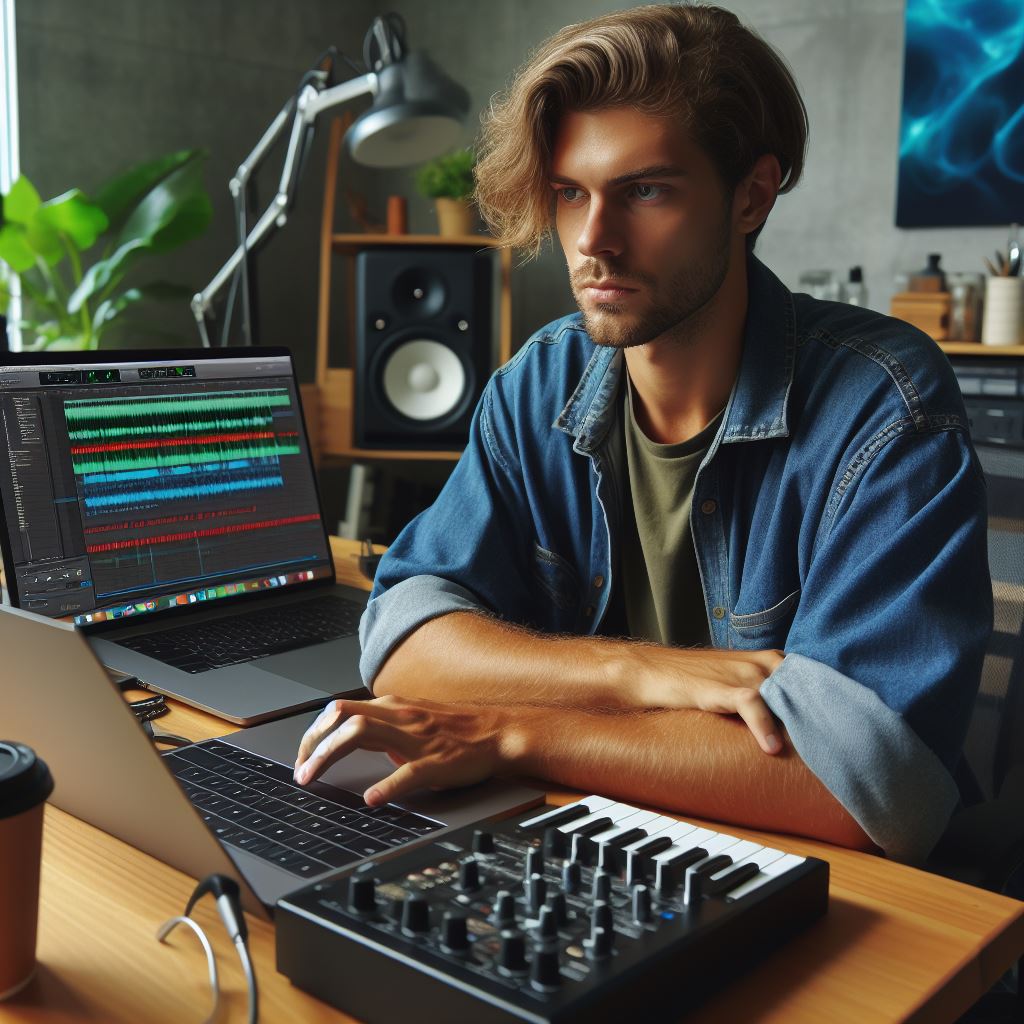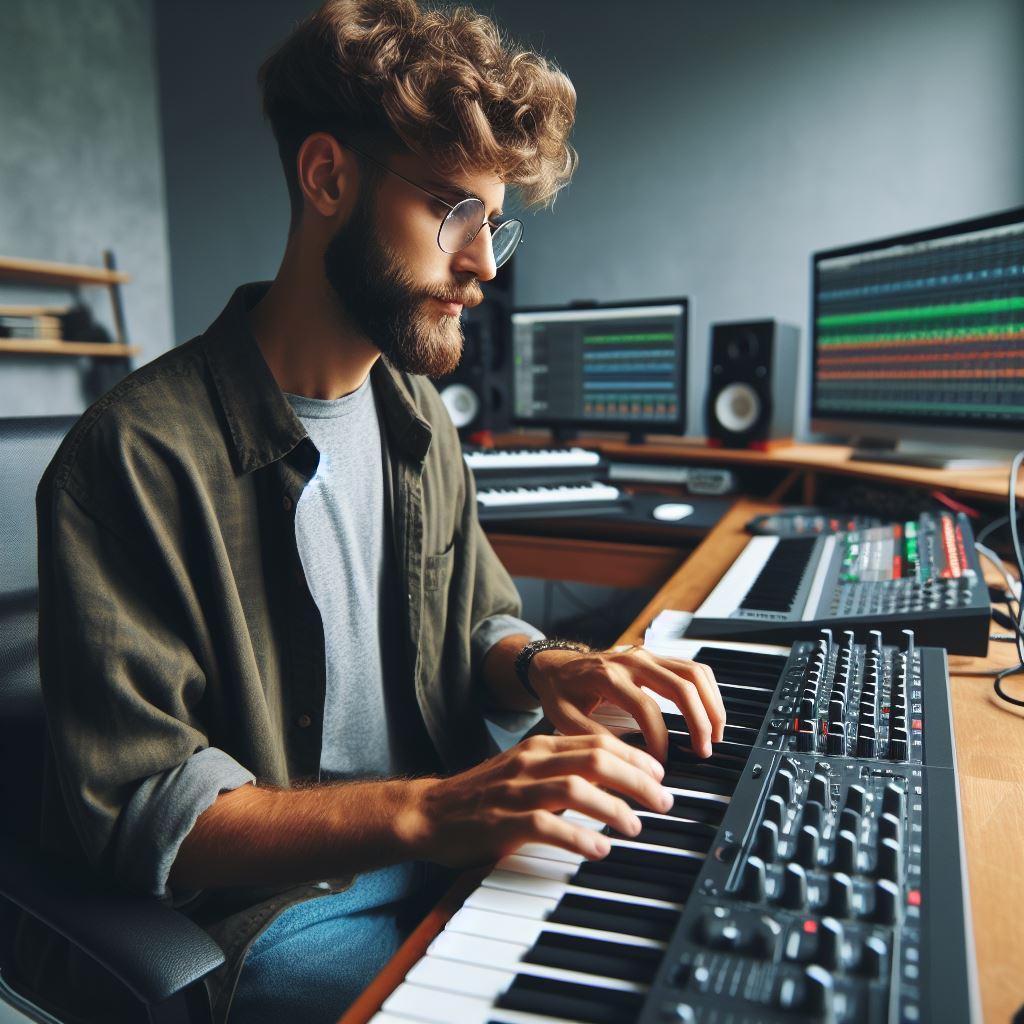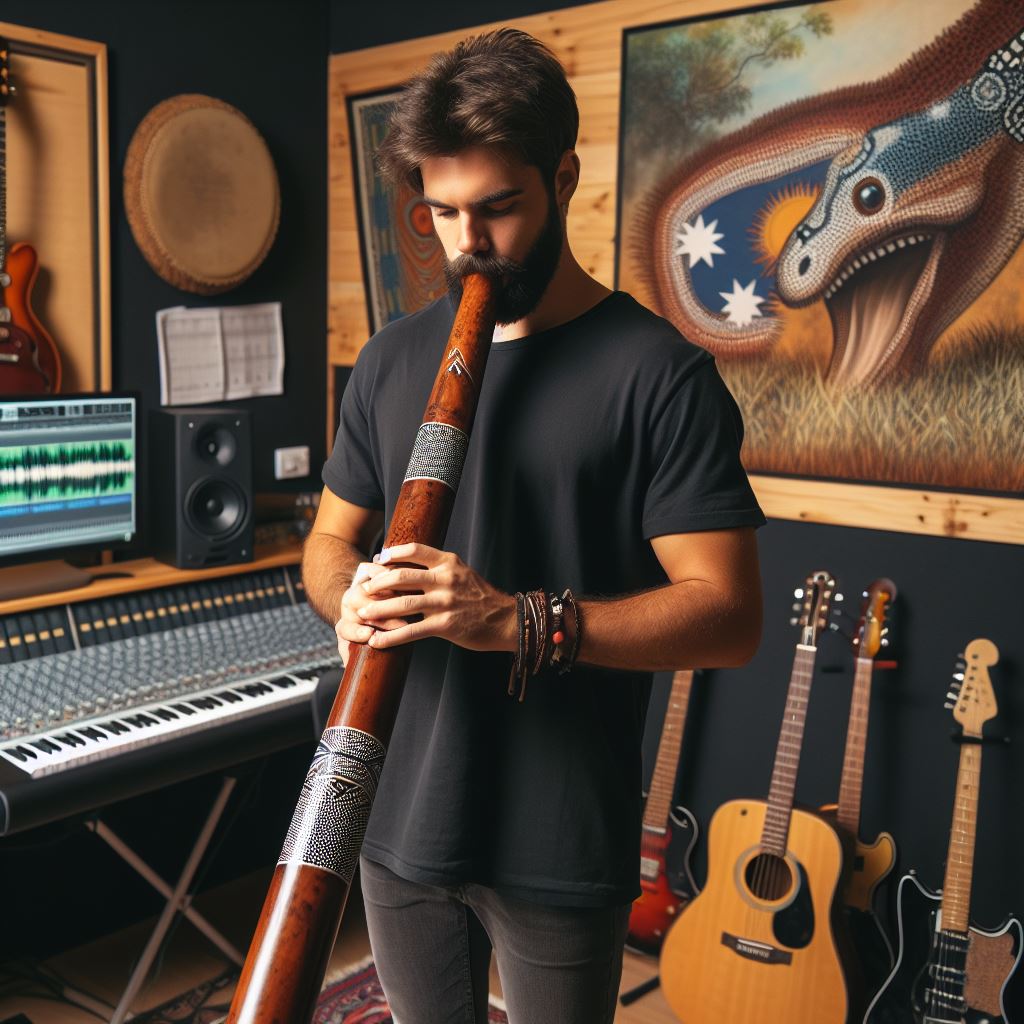Introduction
Navigating the Musical Tapestry of Australia
Embark on a captivating exploration through our comprehensive guide, “Touring Australia: A Guide for Musicians.” This vibrant continent beckons with a diverse musical tapestry waiting to be woven into your artistic journey.
The Cultural Magnitude of Australian Tours
- Diverse Music Scenes: Immerse yourself in a myriad of musical genres, from the bustling urban hubs to the serene landscapes.
- Forge Connections: Australia isn’t just a tour; it’s a networking extravaganza. Connect with local artists and build a global musical community.
The Crucial Role of Australian Tours
In the grand symphony of a musician’s career, touring Australia stands out as a pivotal movement. It’s not just a performance; it’s an immersion into a cultural mosaic, offering boundless opportunities for growth and global resonance.
Prepare to embark on a melodic odyssey, where every note resonates with the heart of Australia’s musical spirit!
Researching and Planning
The significance of thorough research before planning a tour
Thorough research is crucial before planning a tour to ensure its success and avoid potential pitfalls.
Researching allows musicians to gather valuable insights and important information about the target audience, local music scene, and venues.
Understanding the demographics, musical preferences, and culture of different cities helps in tailoring the tour to connect with potential fans.
Researching also helps musicians in identifying potential challenges or obstacles they might face during the tour.
It enables them to make informed decisions about transportation, accommodation, route planning, and budget allocation.
A lack of research can lead to poor planning, limited opportunities, and financial losses for musicians.
Researching thoroughly allows musicians to optimize their time, resources, and energy during the tour.
It enables them to identify cities or venues that align with their music genre, style, and target audience.
Overall, thorough research is the foundation for a successful and well-planned tour that maximizes exposure and audience engagement.
Tips for finding information about potential venues and cities
Utilize online platforms like social media, music forums, and websites dedicated to local events and concerts.
- Engage with local music communities and networking groups to gather firsthand information.
- Contact local musicians or bands who have previously toured in Australia for recommendations and advice.
- Reach out to music promoters, booking agents, and venue owners to get insights into the local music scene.
- Attend local music events, gigs, and festivals to get a sense of the venue atmosphere and audience.
- Read online reviews, testimonials, and ratings of venues to gauge their suitability for the tour.
- Consider the accessibility, capacity, amenities, and equipment provided by potential venues.
- Research the city’s cultural calendar, events, and festivals to align the tour dates with potential collaborations.
The importance of understanding the local music scene
Understanding the local music scene is essential for musicians touring Australia as it helps them tailor their performances.
Researching the local music scene provides insights into the prevailing genres, trends, and audience expectations.
Your Personalized Career Strategy
Unlock your potential with tailored career consulting. Get clear, actionable steps designed for your success. Start now!
Get StartedIt helps musicians determine the appropriate venues, events, and cities where their music would be well-received.
By studying the local music scene, musicians can identify potential collaborators, support acts, or opening opportunities.
Understanding the local scene enables musicians to avoid cultural mishaps or unintentional offense during performances.
It allows them to adjust their marketing and promotional strategies to effectively reach the target audience.
Knowing the local scene also helps in establishing connections with industry professionals such as label representatives or music journalists.
Overall, understanding the local music scene enhances musicians’ chances of success and creates memorable experiences for both them and their audience.
Generally, thorough research is paramount before planning a tour in Australia. It ensures informed decision-making, optimized resources, and increased chances of success.
Gathering information about potential venues and cities, as well as understanding the local music scene, allows musicians to tailor their tour accordingly, connect with their target audience, and avoid potential cultural obstacles.
Researching is the key to a well-planned and impactful tour in Australia.
Budgeting and Financing
Expenses Associated with Touring Australia
- Accommodation: Budget for hotel or hostel stays in different cities during the tour.
- Transportation: Consider flights, train or bus tickets, and hiring a vehicle for traveling between venues.
- Meals: Plan for daily meals, including breakfast, lunch, dinner, and snacks on the road.
- Equipment: Calculate costs for renting or transporting musical instruments and gear.
- Merchandise: Allocate a budget for producing and selling merchandise like CDs, t-shirts, and posters.
- Marketing and Promotion: Include expenses for advertising, social media campaigns, and flyer printing.
- Venue Fees: Set aside funds for booking performance spaces or paying a percentage of ticket sales.
- Staff and Crew: If necessary, account for hiring a tour manager, sound engineer, or roadies.
- Visas and Legalities: Consider visa application fees, work permits, and any necessary legal documentation.
- Insurance: Research options for insuring equipment, health, and liability during the tour.
Tips for Budgeting and Estimating Costs
- Research: Gather information about the costs of accommodation, transportation, and other expenses in various Australian cities.
- Prioritize: Identify essential expenses and allocate a larger portion of the budget to crucial aspects like accommodation and transportation.
- Create a Detailed Spreadsheet: Make a comprehensive list of expenses and track actual spending during the tour.
- Consider Contingencies: Include a buffer amount in the budget to account for unexpected expenses or emergencies.
- Negotiate: Contact venues, hotels, and other service providers to negotiate deals or discounts.
- Collaborate with Other Bands: Sharing resources and costs with other touring musicians can help reduce individual expenditures.
- Plan Ahead: Book accommodations and transportation in advance to secure better prices and availability.
Exploring Potential Funding Options and Sponsorships
- Grants and Funding Programs: Research organizations that offer grants specifically for musicians touring Australia.
- Crowdfunding: Utilize online platforms to reach out to fans and supporters who may contribute to tour expenses.
- Sponsorships: Approach local businesses or brands that align with your music genre and request their support in exchange for promotion or branding opportunities.
- Merchandise Sales: Maximize revenue by selling merchandise during the tour to offset expenses.
- Fan Support: Engage with your fans through social media and offer exclusive perks or experiences in exchange for financial support.
- Collaboration with Venues or Festivals: Seek partnerships with Australian venues or festivals that may contribute to travel or accommodation costs.
Remember, budgeting properly and exploring funding options will help ensure a successful and financially sustainable tour in Australia.
Securing Travel and Accommodation
Guide on Finding Affordable Flights and Transportation within Australia
- Start by comparing prices on different airline websites or using flight search engines.
- Consider flying into less popular airports or using budget airlines for cheaper fares.
- Be flexible with your travel dates and try to book in advance to secure the best deals.
- Consider traveling during off-peak seasons for lower prices and fewer crowds.
- When it comes to transportation within Australia, research different options like trains, buses, and rental cars.
- Compare prices and look for discounted rates or passes for multiple journeys.
- Consider using rideshare services or joining carpooling groups to save money on transportation.
Tips for Booking Accommodation, Considering Budget and Location
- Set a budget for accommodation and prioritize your needs.
- Research different types of accommodations like hotels, hostels, guesthouses, or Airbnb.
- Consider staying in the outskirts of popular cities for more affordable options.
- Check for special offers, discounts, or package deals from accommodation providers.
- Read reviews from previous guests to ensure the quality and reliability of the accommodation.
- Consider booking directly with the accommodation provider to avoid extra fees.
- Join loyalty programs or use travel credit cards to earn rewards or discounts on accommodation.
Alternative Options like Couch-Surfing or House-Swapping
- If you’re open to new experiences and meeting locals, consider couch-surfing.
- Websites like Couchsurfing.com connect travelers with hosts willing to offer a free place to stay.
- Make sure to read reviews and communicate with potential hosts beforehand to ensure safety.
- House-swapping is another option where you exchange homes with someone in Australia.
- Websites like HomeExchange.com facilitate these exchanges based on mutual agreement.
- Ensure clear communication and agreement with the other party regarding expectations and rules.
- These alternative options not only save money but also provide unique cultural experiences.
By following these tips, musicians touring Australia can secure affordable travel and accommodation, allowing them to focus on their performances and enjoying the beauty of the country.
Read: Building a Music Career in Australia
Organizing and Promoting Concerts
Factors to consider when selecting venues and dates for performances
- Budget: Ensure the venue and date are financially feasible for your music tour.
- Capacity: Pick venues that can accommodate your expected audience size.
- Location: Choose locations that are easily accessible and have a good audience demographic for your music genre.
- Reputation: Research the venue’s reputation and check reviews from other musicians who have performed there.
- Competing events: Avoid scheduling your concert during major events that might draw away your potential audience.
Tips for negotiating contracts and fees with venue owners
- Understand the venue’s standard terms and conditions before entering negotiations.
- Highlight your unique selling points to negotiate better fees and contract terms.
- Be prepared to negotiate and compromise to reach a mutually beneficial agreement.
- Clearly define the responsibilities and expectations of both parties in the contract.
- Consider seeking legal advice to ensure the contract protects your rights and interests.
Strategies for effective concert promotion, both online and offline
- Create a professional and visually appealing website or social media page dedicated to your tour.
- Utilize online platforms such as social media, music streaming sites, and event listing websites to promote your concerts.
- Develop partnerships with local newspapers, radio stations, and influencers to gain offline exposure.
- Offer exclusive promotions or ticket bundles to encourage fans to attend your concerts.
- Engage with your audience through interactive content, live streams, and behind-the-scenes glimpses to build anticipation.
Strategic Planning for Successful Concerts: Venue Selection, Negotiation, and Contract Essentials for Aussie Musicians
As a musician touring Australia, organizing and promoting concerts requires careful consideration and strategic planning. The selection of venues and dates plays a crucial role in ensuring the success of your performances.
When choosing a venue, factors such as budget, capacity, location, reputation, and competing events should be taken into account. These considerations will help you find the most suitable venues to reach your target audience.
When negotiating contracts and fees with venue owners, it is essential to be well-prepared and persuasive.
Familiarize yourself with the venue’s terms and conditions beforehand, and emphasize your unique selling points to justify better fees and contract terms.
Negotiation and compromise are often necessary, so be open to finding a middle ground that benefits both parties.
It is advisable to have a written contract that clearly outlines the responsibilities and expectations of both the musician and the venue.
Strategies for Successful Concert Promotion: Online Presence, Partnerships, and Audience Engagement
Concert promotion is key to attracting an audience to your performances. Creating a professional website or social media page dedicated to your tour can help showcase your talent and provide important information to potential attendees.
Leveraging online platforms, such as social media, music streaming sites, and event listing websites, can significantly expand your reach and exposure.
Additionally, forming partnerships with local newspapers, radio stations, and influencers can help generate offline buzz and broaden your audience base.
To further entice fans, consider offering exclusive promotions or ticket bundles that provide added value.
Engaging with your audience through interactive content, live streams, and behind-the-scenes glimpses can create anticipation and build a stronger connection.
By utilizing both online and offline promotion strategies, you increase your chances of attracting a larger audience to your concerts.
Stand Out with a Resume That Gets Results
Your career is worth more than a generic template. Let us craft a resume and cover letter that showcase your unique strengths and help you secure that dream job.
Get HiredEssentially, organizing and promoting concerts during your Australian music tour requires careful consideration of venue selection, contract negotiation, and effective marketing.
Taking into account factors like budget, capacity, location, and reputation when choosing venues will help ensure the success of your performances.
Negotiating contracts and fees with venue owners requires preparation and persuasive communication.
Implementing comprehensive marketing strategies, both online and offline, will boost the visibility of your concerts and attract a larger audience.
Read: Australian Music Awards: A Closer Look
Dealing with Visas and Legalities
Overview of visa requirements for musicians visiting Australia
- There are different visa options available for musicians intending to visit Australia.
- Temporary Work (Entertainment) visa (subclass 420) is commonly used by musical artists.
- Musicians need to prove their exceptional talent in order to qualify for this visa.
- It allows them to perform in Australia for a specified period of time.
- Processing times for the visa application can vary, so it’s essential to plan ahead.
- Ensure all required documents, such as contracts and letters of invitation, are well-prepared.
Tips for obtaining appropriate visas and work permits
- Research and familiarize yourself with the visa options available for musicians.
- Consult with an immigration lawyer or agent who specializes in visa applications for musicians.
- Start the visa application process well in advance to avoid any last-minute complications.
- Provide all necessary supporting documents, such as proof of musical accomplishments and engagements.
- Ensure your passport has sufficient validity and obtain any other required travel documents.
- Keep track of any updates or changes in visa regulations to stay informed.
The importance of understanding local laws and regulations
Musicians visiting Australia should have a clear understanding of the local laws and regulations to avoid any legal issues. Failure to comply with these laws can lead to serious consequences, including visa cancellation and deportation.
- Research and familiarize yourself with the specific laws and regulations related to musical performances.
- Ensure compliance with copyright laws and obtain proper licenses for performing copyrighted material.
- Be aware of any restrictions on public performances, such as noise curfews or venue-specific regulations.
- Respect local cultural norms and sensitivities to maintain a positive reputation and avoid misunderstandings.
- Stay updated with any changes in local laws and regulations that might affect musicians.
- Consider seeking legal advice or consulting local authorities if you have any uncertainties or questions.
By understanding the visa requirements, obtaining appropriate work permits, and adhering to local laws, musicians can confidently tour Australia without any legal complications.
Remember, thorough preparation and compliance are key to a successful and hassle-free musical journey in Australia.
Read: Music Production: A Guide for Aussies

Building Connections and Networking
Guide on connecting with local musicians, bands, and industry professionals
- Attend local music gigs and concerts to get to know the local music scene.
- Show genuine interest in their work and ask for their contact information.
- Networking events like music conferences and workshops can provide valuable opportunities to meet industry professionals.
- Strike up conversations with fellow musicians and industry experts during such events.
- Exchange business cards or contact information to stay in touch and collaborate in the future.
- Actively participate in online forums and groups dedicated to musicians and bands in Australia.
- Share your expertise, opinions, and experiences to establish yourself as a valuable member of the community.
- Engage in discussions, offer advice, and seek collaborations through these online platforms.
- Attend open mic nights and jam sessions to connect with like-minded musicians and potentially form new bands.
Tips for attending music events and festivals to expand networks
- Research and identify the music events and festivals that align with your genre and interests.
- Purchase tickets in advance to secure your spot and show support for the event.
- Arrive early to have more time for networking before performances start.
- Be approachable and strike up conversations with fellow attendees, musicians, and industry professionals.
- Attend workshops and panels where you can learn and interact with experienced professionals.
- Follow up with the people you meet by sending personalized emails or connecting on social media.
- Offer to collaborate or share resources with potential connections to foster strong relationships.
- Stay informed about upcoming music events and festivals through local websites, social media, and music publications.
- Volunteer at music events and festivals to gain behind-the-scenes access and increase your network.
- Be respectful, professional, and trustworthy when dealing with industry professionals as they can provide valuable opportunities.
Utilizing social media and online platforms for networking opportunities
- Establish a strong online presence by creating professional social media profiles that showcase your music and personality.
- Regularly update your profiles with engaging content, including videos, photos, and updates on your musical journey.
- Engage with your followers by responding to comments, messages, and sharing their content.
- Share relevant and interesting content from other musicians and industry professionals in your network.
- Participate in online challenges, competitions, and collaborations to expand your reach and network.
- Take advantage of platforms like SoundCloud, Bandcamp, and Spotify to share and promote your music.
- Join online communities and groups specific to musicians in Australia to connect with like-minded individuals.
- Collaborate with other musicians virtually by recording and producing music together online.
- Seek feedback and constructive criticism from your online community to improve your craft.
- Utilize email marketing to stay connected with your network by sharing updates, new releases, and upcoming shows.
By actively building connections and networking with local musicians, attending music events and festivals, and utilizing online platforms, musicians can expand their networks and find valuable opportunities in the Australian music industry.
Remember, networking is a two-way street, and nurturing relationships is essential for long-term success.
Read: How to Network in Australia’s Music Scene
Managing Tour Logistics and Logistics
Importance of Organizing Transportation, Equipment, and Merchandise
- Efficiently managing transportation is crucial to ensure a smooth and successful tour.
- Arrange transportation options in advance to avoid last-minute complications and delays.
- Properly pack and secure your equipment and merchandise to prevent damage during transit.
- Label everything clearly to avoid confusion and make loading and unloading easier.
- Consider hiring professional logistics services that specialize in handling music tour logistics.
- Having a well-organized transportation system ensures that your instruments and merchandise arrive safely.
- Plan and coordinate the logistics of transporting your goods to different venues in a timely manner.
- Invest in quality road cases and protective packaging materials to safeguard your valuable equipment.
- Maintain a detailed inventory of all your equipment, including serial numbers and descriptions.
- Regularly inspect and maintain your vehicles to avoid breakdowns and costly delays on the road.
Tips for Creating a Solid Tour Itinerary and Managing Logistics Effectively
- Create a comprehensive tour itinerary with specific dates, venues, and travel routes.
- Consider the distance between venues to ensure realistic travel times for each leg of the tour.
- Factor in rest days to prevent exhaustion and allow time for sightseeing or relaxation.
- Clearly communicate the itinerary to all band members and crew to avoid confusion.
- Ensure that everyone involved understands their responsibilities and the schedule.
- Have contingency plans for unexpected situations like canceled shows or travel disruptions.
- Coordinate with promoters, venues, and event organizers to align logistics and schedules.
- Provide clear directions and contact information for each venue to avoid getting lost.
- Stay updated on weather conditions and adjust your travel plans accordingly.
- Keep a centralized document or online platform for real-time updates and changes.
Strategies for Dealing with Unexpected Challenges During the Tour
- Stay flexible and be prepared to adapt quickly to unforeseen circumstances.
- Develop problem-solving skills to overcome challenges on the spot.
- Maintain open communication with all members of your team to address issues promptly.
- Have emergency contacts readily available for quick assistance.
- Consider travel insurance to protect against unexpected cancellations or accidents.
- Build a network of local contacts for support in different tour locations.
- Stay calm and positive when facing difficulties, as your mindset affects the entire team.
- Learn from any setbacks or obstacles encountered during the tour to improve future logistics.
- Regularly assess your logistics plan to identify areas for improvement and efficiency.
- Appreciate the unique experiences and challenges that touring presents, and embrace them with resilience.
Managing tour logistics effectively is essential to ensure a successful and enjoyable experience for musicians. Organizing transportation, equipment, and merchandise is of utmost importance.
Creating a solid tour itinerary and coordinating logistics ensures smooth operations. However, unexpected challenges are inevitable.
By staying flexible, communicative, and proactive, musicians can overcome these challenges and make the most out of their touring experience.
Maximizing Opportunities and Experiences
Engaging with Local Culture and Attractions
- Immerse yourself in the local culture by exploring museums, art galleries, and historical landmarks.
- Attend festivals and events to experience the unique traditions and music that Australia has to offer.
- Interact with locals and learn about their customs, language, and way of life.
- Try the local cuisine and visit restaurants known for their authentic Australian flavors.
- Explore natural attractions such as beaches, national parks, and wildlife reserves for a true Australian adventure.
Taking Advantage of Additional Gig Opportunities or Collaborations
- Network with local musicians, promoters, and venue owners to find additional gig opportunities.
- Be open to collaboration with local artists and bands to create memorable performances and expand your audience.
- Utilize social media and online platforms to promote your music and connect with potential collaborators.
- Attend open mic nights or jam sessions to showcase your talent and meet other like-minded musicians.
- Stay updated on local music events and submit your music for festival or concert consideration.
The Significance of Enjoying the Journey and Making Lasting Memories
- Take time to appreciate the beauty of Australia’s landscapes and reflect on your musical journey.
- Document your experiences through photographs, videos, or a journal to create lasting memories.
- Engage in outdoor activities such as hiking, surfing, or exploring the Great Barrier Reef for a well-rounded experience.
- Connect with fans and audiences by sharing personal stories and experiences during performances.
- Take breaks from the music scene to relax and rejuvenate, ensuring a balanced and enjoyable tour experience.
By engaging with local culture and attractions, musicians can truly immerse themselves in Australia’s rich heritage. This not only enhances their understanding of the country but also adds depth and uniqueness to their music.
By taking advantage of additional gig opportunities and collaborations, musicians can expand their fan base and create memorable performances.
Engaging with local artists also fosters a sense of unity and creativity, allowing for diverse musical experiences. Finally, it is crucial to enjoy the journey and make lasting memories.
Australia’s natural wonders and vibrant cities offer countless opportunities for exploration and relaxation.
By embracing the local culture, seizing gig opportunities, and cherishing the moments, musicians can maximize their experiences and create a tour they will never forget.
Conclusion
- In closing, this blog post has discussed important points to consider when touring Australia as a musician.
- We highly encourage musicians to embark on an Australian tour, as it offers unique opportunities for growth and exposure.
- Finally, while touring Australia as a musician has its rewards, there are also challenges that should not be underestimated.
Overall, the Australian music scene is vibrant and diverse, providing artists with a chance to connect with new audiences and expand their fanbase.
However, it’s crucial to carefully plan and budget for the tour to ensure its success and avoid any potential pitfalls.
Despite the distance and logistical challenges, touring Australia can be a truly rewarding experience for musicians, both personally and professionally. So, pack your bags, bring your best performances, and get ready to make memories Down Under!




